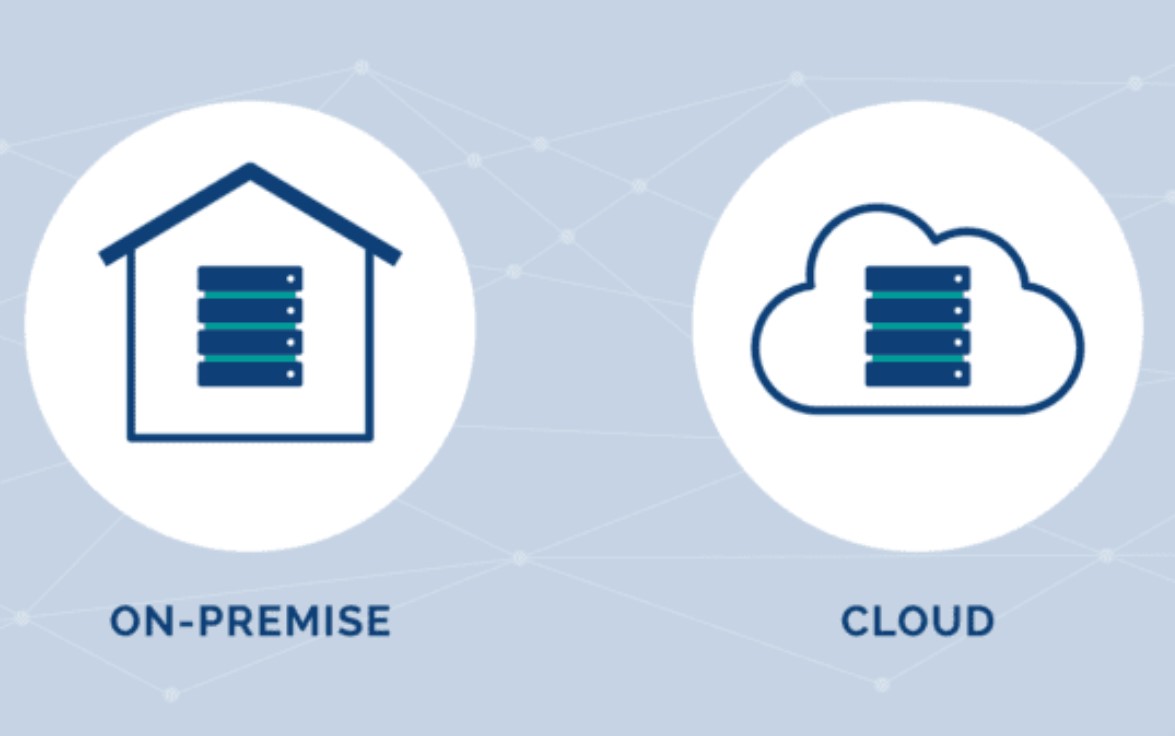
In the world of web hosting, Virtual Private Server (VPS) hosting stands out as a popular choice for businesses seeking performance, control, and reliability. But is it worth the investment? This article dives deep into the cost analysis of VPS hosting, examining its benefits, comparing top products, and providing actionable insights to help you decide if it’s the right choice for your business.
What is VPS Hosting?

Virtual Private Server (VPS) hosting is a type of web hosting where a physical server is divided into multiple virtual servers, each with its own dedicated resources and operating system. This setup provides users with more control, flexibility, and performance compared to shared hosting, while being more cost-effective than a dedicated server. Let’s delve deeper into what VPS hosting is, how it works, and its key benefits.
Understanding VPS Hosting
1. The Basics of VPS Hosting
At its core, VPS hosting uses virtualization technology to split a single physical server into several virtual servers. Each virtual server functions independently, with its own set of allocated resources such as CPU, RAM, and storage. This isolation ensures that activities on one VPS do not affect the others, providing a more stable and reliable hosting environment.
2. How VPS Hosting Works
Virtualization Technology
The foundation of VPS hosting is virtualization. A hypervisor or virtualization layer, such as VMware, KVM, or Hyper-V, is installed on the physical server. This hypervisor creates and manages virtual machines (VMs) by dividing the physical resources of the server. Each VM acts as a fully independent server with its own operating system and can be rebooted independently.
Allocation of Resources
Resources on a VPS are dedicated to each virtual server. This means that the amount of CPU, RAM, and storage allocated to your VPS is exclusively yours and is not shared with other VPS users. This dedicated allocation ensures consistent performance and reliability.
Key Features of VPS Hosting
1. Dedicated Resources
Unlike shared hosting, where resources are shared among all users on the server, VPS hosting allocates specific resources to each virtual server. This results in better performance and stability, as your website is not affected by the resource usage of others.
2. Full Root Access
VPS hosting provides full root access, allowing you to have complete control over your server environment. You can install custom software, configure server settings, and manage security protocols according to your business needs.
3. Isolation
Each VPS operates in an isolated environment. This means that any issues or activities on one VPS do not impact others on the same physical server. This isolation enhances security and ensures consistent performance.
4. Scalability
VPS hosting offers easy scalability. As your business grows, you can easily upgrade your resources (CPU, RAM, storage) without significant downtime. This flexibility makes VPS hosting suitable for businesses of all sizes.
Benefits of VPS Hosting for Your Business

Performance and Reliability
VPS hosting offers dedicated resources, ensuring that your website performs consistently even during high traffic periods. This reliability translates into a better user experience and higher customer satisfaction.
Customization and Control
With VPS hosting, you get full root access to your server, allowing for custom software installations and configurations tailored to your business needs. This level of control is essential for businesses with specific requirements.
Enhanced Security
VPS hosting provides better security measures than shared hosting, including isolated environments that prevent other users from affecting your server’s performance and security. This is crucial for protecting sensitive business data.
Scalability
As your business grows, your hosting needs will evolve. VPS hosting allows for easy resource upgrades, ensuring that your server can handle increased traffic and data without significant downtime or migration hassles.
Real-World Examples of VPS Hosting Providers
1. DigitalOcean
Features:
- Flexible pricing starting at $5/month
- High-performance SSD storage
- Easy-to-use control panel
- Scalable resources
- Extensive documentation and support
2. Vultr
Features:
- Customizable plans starting at $2.50/month
- High-frequency compute instances
- Multiple data center locations
- One-click app deployment
- Robust API for automation
3. Linode
Features:
- Competitive pricing from $5/month
- Balanced performance with SSD storage
- Comprehensive security features
- Global data centers
- 24/7 customer support
4. A2 Hosting
Features:
- Turbo servers for 20x faster loading speeds
- Free site migration
- Developer-friendly tools
- Anytime money-back guarantee
- Green hosting initiative
5. InMotion Hosting
Features:
- Managed VPS hosting options
- Free SSDs and SSL certificates
- cPanel included
- 90-day money-back guarantee
- 24/7/365 customer support
Comparison Table of VPS Hosting Providers
| Provider | Use Case | Pros | Cons | Price | Features |
|---|---|---|---|---|---|
| DigitalOcean | Developers, SMBs | Affordable, scalable, user-friendly | Limited Windows support | From $5/mo | SSD storage, control panel, extensive documentation |
| Vultr | Developers, SMBs | High-frequency instances, global | Complex pricing structure | From $2.50/mo | Customizable plans, multiple data centers, one-click apps |
| Linode | Developers, SMBs | Reliable, secure, great support | Slightly higher pricing | From $5/mo | SSD storage, global data centers, security features |
| A2 Hosting | Businesses, SMBs | Fast servers, free migration | Higher cost for premium plans | From $5/mo | Turbo servers, developer tools, money-back guarantee |
| InMotion Hosting | Businesses, SMBs | Managed options, SSDs, SSL | Higher pricing for managed plans | From $17.99/mo | Free SSDs, cPanel, 90-day money-back guarantee |
Detailed Analysis of Each Product
1. DigitalOcean
DigitalOcean is known for its simplicity and developer-friendly approach. It’s perfect for small to medium-sized businesses looking for an affordable yet powerful VPS hosting solution.
Benefits:
- Cost-Effective: Starting at just $5/month, DigitalOcean offers scalable plans to suit different needs.
- User-Friendly Interface: Their intuitive control panel makes managing your server a breeze.
- Documentation: Extensive resources and tutorials help users get the most out of their VPS.
2. Vultr
Vultr stands out with its high-frequency compute instances and customizable plans, making it ideal for businesses that require specific server configurations.
Benefits:
- High Performance: Their high-frequency instances are designed for demanding applications.
- Global Presence: With multiple data centers worldwide, Vultr ensures low latency and high availability.
- Flexibility: Customize your plan to match your exact requirements.
3. Linode
Linode offers a balanced combination of performance, security, and support, making it a solid choice for businesses looking for a reliable VPS hosting provider.
Benefits:
- Security: Comprehensive security features protect your data and applications.
- Support: 24/7 customer support ensures help is always available when you need it.
- Performance: High-performance SSD storage ensures fast data access and processing.
4. A2 Hosting
A2 Hosting is renowned for its turbo servers, which offer speeds up to 20 times faster than standard hosting. This makes it an excellent choice for businesses that prioritize speed and performance.
Benefits:
- Speed: Turbo servers provide exceptional loading speeds, improving user experience.
- Support: Their expert support team is available 24/7 to assist with any issues.
- Green Hosting: A2 Hosting is committed to environmentally friendly practices.
5. InMotion Hosting
InMotion Hosting provides managed VPS hosting options, making it ideal for businesses that prefer a hands-off approach to server management.
Benefits:
- Managed Services: Let InMotion handle server management, so you can focus on your business.
- Free SSDs and SSL: Improve your website’s speed and security at no extra cost.
- Money-Back Guarantee: Their 90-day money-back guarantee shows confidence in their service.
Use Cases and Solutions
Common Problems Solved by VPS Hosting
- Scalability: Easily upgrade resources as your business grows.
- Security: Enhanced security features protect against cyber threats.
- Performance: Dedicated resources ensure consistent performance.
- Customization: Full control over server configurations for specialized applications.
Why Businesses Need VPS Hosting
- E-commerce Websites: Handle high traffic and ensure fast load times.
- Growing Businesses: Scale resources without significant downtime.
- Data Security: Protect sensitive customer and business data.
- Custom Applications: Run specialized software and configurations.
How to Buy VPS Hosting

Buying VPS hosting can seem daunting, especially if you’re new to the world of web hosting. However, with the right guidance, the process can be straightforward and stress-free. Here’s a detailed, step-by-step guide on how to purchase VPS hosting for your business.
Step 1: Research and Compare Providers
Before committing to a VPS hosting provider, it’s essential to research and compare different options. Look for reviews, compare features, pricing, and consider the specific needs of your business.
Key Factors to Consider:
- Performance: Look for providers that offer high-performance servers with SSD storage and robust hardware.
- Reliability: Choose a provider with a strong uptime record and positive customer reviews.
- Scalability: Ensure the provider offers flexible plans that allow for easy upgrades.
- Support: Check for 24/7 customer support and comprehensive documentation.
- Security: Look for advanced security features like firewalls, DDoS protection, and regular backups.
Step 2: Visit the Provider’s Website
Once you’ve shortlisted a few providers, visit their official websites to explore their offerings in detail. This will give you a better understanding of their services and help you make an informed decision.
Step 3: Choose a Plan
Each VPS hosting provider offers multiple plans tailored to different needs. When selecting a plan, consider the following:
Criteria for Choosing a Plan:
- CPU and RAM: Higher CPU and RAM provide better performance, especially for high-traffic websites.
- Storage: SSD storage is faster and more reliable than traditional HDD storage.
- Bandwidth: Ensure the plan offers sufficient bandwidth to handle your website’s traffic.
- Control Panel: Some plans include control panels (like cPanel or Plesk) for easier server management.
- Additional Features: Look for extras like automated backups, DDoS protection, and managed services.
Step 4: Sign Up and Create an Account
After selecting a plan, proceed to the sign-up process. You’ll need to provide some basic information to create an account with the hosting provider.
Information Required:
- Personal Details: Name, email address, phone number, and billing information.
- Domain Information: If you already have a domain, you’ll need to enter it. If not, you can register a new domain through the provider.
Step 5: Configure Your Server
Once your account is set up, you’ll need to configure your VPS. This step involves customizing your server settings to match your business requirements.
Configuration Options:
- Operating System: Choose between Linux (popular choices include Ubuntu, CentOS, and Debian) or Windows, depending on your needs.
- Control Panel: Select a control panel if it’s part of your plan. Control panels make server management easier.
- Server Location: Choose a data center location closest to your primary audience to reduce latency.
- Additional Services: Opt for additional services like automated backups, managed services, or enhanced security features if needed.
Step 6: Review and Checkout
Before finalizing your purchase, review your chosen plan and server configuration to ensure everything is correct. Pay attention to the total cost, including any additional services or features you’ve selected.
Checkout Process:
- Payment Method: Choose a payment method (credit card, PayPal, etc.) and enter your payment details.
- Review Terms: Read through the provider’s terms of service and privacy policy to understand their policies and ensure compliance.
- Confirmation: After confirming your payment, you’ll receive a confirmation email with details about your VPS and instructions for accessing your server.
Step 7: Deploy and Manage Your VPS
Once your purchase is complete, you can deploy your VPS and start managing it. Most providers offer a control panel or dashboard to help you manage your server efficiently.
Deployment and Management Tips:
- Access Your Server: Use SSH (for Linux) or Remote Desktop (for Windows) to access your server.
- Install Software: Install any necessary software or applications required for your website or business operations.
- Monitor Performance: Regularly monitor your server’s performance and resource usage to ensure optimal operation.
- Implement Security Measures: Set up firewalls, perform regular backups, and keep your server software updated to maintain security.
FAQs
1. What is VPS hosting?
VPS hosting provides a virtual private server with dedicated resources, offering more control and performance than shared hosting.
2. How does VPS hosting differ from shared hosting?
VPS hosting offers dedicated resources and full control over the server, while shared hosting shares resources among multiple users, often leading to performance issues.
3. Is VPS hosting secure?
Yes, VPS hosting is more secure than shared hosting due to its isolated environment and enhanced security features.
4. Can I upgrade my VPS plan?
Yes, VPS hosting allows for easy scalability, enabling you to upgrade resources as your business grows.
5. Which VPS hosting provider is the best?
The best provider depends on your specific needs. DigitalOcean, Vultr, Linode, A2 Hosting, and InMotion Hosting are all excellent choices with unique features.
Investing in VPS hosting can significantly enhance your business’s online presence by providing better performance, security, and control. By understanding the costs and benefits, and comparing top providers, you can make an informed decision that aligns with your business goals.
[hurrytimer id=”490″]





